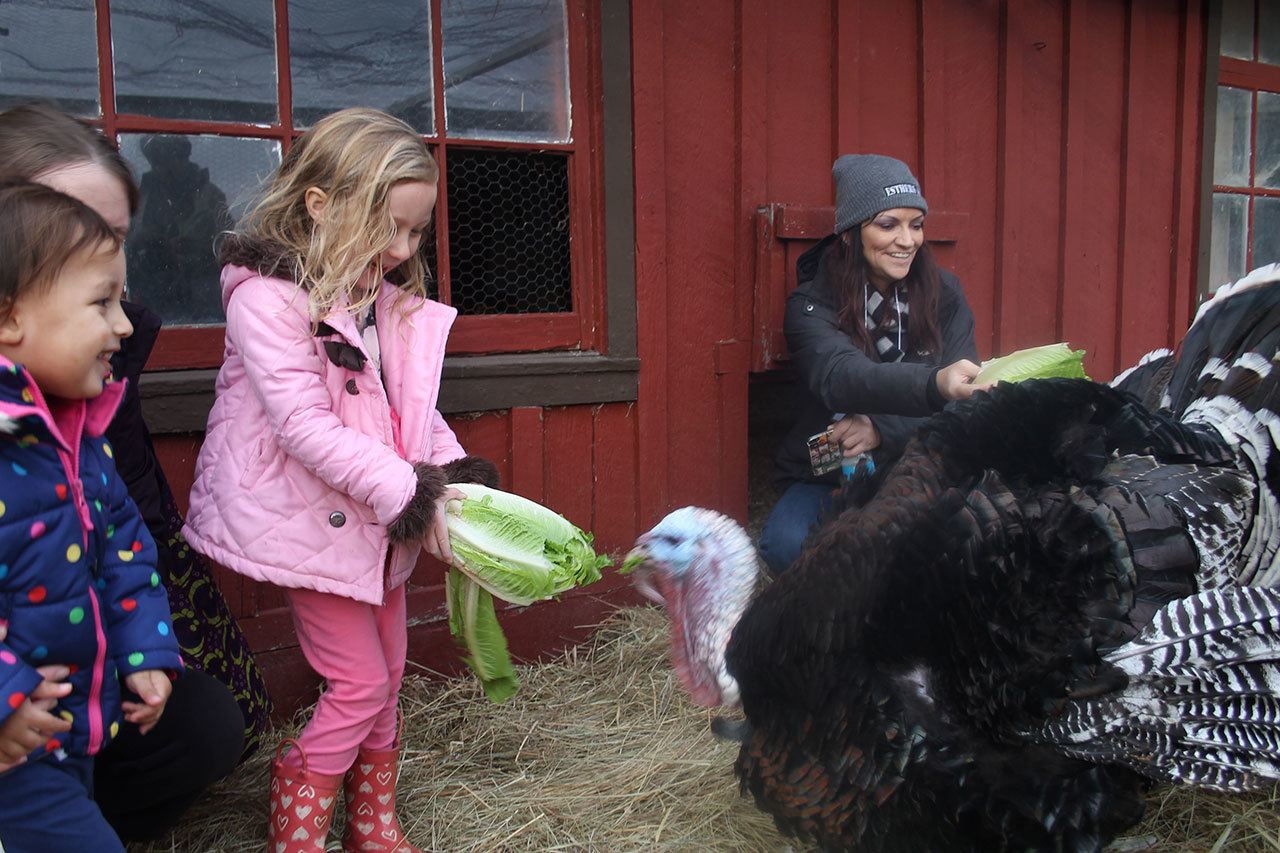On Thanksgiving, don’t eat turkey, feed one.
That’s what guests at the Island Haven Animal Sanctuary’s first annual ThanksLiving event did on Nov. 20.
“These turkeys can live the rest of their lives here,” said Founder Julie Duke, “and not be Thanksgiving dinner.”
At Island Haven Animal Sanctuary, local farm animals, who are sick, old or abandoned, can find refuge on the nonprofit’s 30 acres off San Juan Valley Road. The farm is home to seven horses, two pigs, two alpacas and 20 assorted poultry, including Bob the turkey.
When Duke received word that an abandoned turkey was seen off Egg Lake Road, she used her skills as the former executive director of Wolf Hollow Wildlife Rehabilitation Center, to gather him in a sheet and bring him to the sanctuary. His four other turkey companions are also older and abandoned. Some have arthritis.
Every sanctuary animal has a story. There’s Maxx, the aging competition horse, who has a tumor and requires medicine and a special diet. There are also Fred and Missy, two breeding pigs out of reproduction years, who board member Melissa Sehgal helped to rescue.
“There is no difference between cats and dogs and these animals — whether horses, chickens or pigs,” said Sehgal. “They recognize your voice, your touch. It’s amazing to see your bond with them.”
On Nov. 20, guests toured the sanctuary with volunteers. Tables of food were available inside a shelter — vegetables and fruits to feed animals and vegan dishes for people.
Sehgal’s been serving what she calls a “cruelty-free Thanksgiving” for about 16 years, with a tofu turkey, mashed potatoes with almond milk and sweet potatoes with vegan marshmallows.
“It’s great when you cook a vegan meal and people don’t even notice,” said Sehgal.
The idea for the sanctuary began when a farmer put his land and a few horses and alpacas up for sale in 2015. The need to keep the bonded herd animals together prompted Duke, Sehgal and others to form the sanctuary, which achieved nonprofit status last March.
“There’s APS for cats and dogs, and then Wolf Hollow for wildlife, but there was no in between for farm animals who needed a home,” said Duke.
Before joining the sanctuary, Duke first tries to place animals at other farms that might need a companion herd animal, like a horse. The sanctuary has limited resources and space, but leaves some room for emergency rescues. There is a current waitlist of four.
The San Juan County Land Bank and San Juan Preservation Trust own the 300-acre property. The 30 acres of building structures and their pastures was sold to a sanctuary volunteer’s relative in August, allowing the nonprofit to remain on the farm.
Volunteers help to mend fences, feed and care for animals, and fund animal care in monthly sponsorships, ranging from $5 for roosters to $50 for horses. It costs $3,500 a year to care for a horse without special needs, said Duke.
The sanctuary is not open to the public, but scheduled tours can be made with volunteers. Visit www.islandhaven.org for more information.



